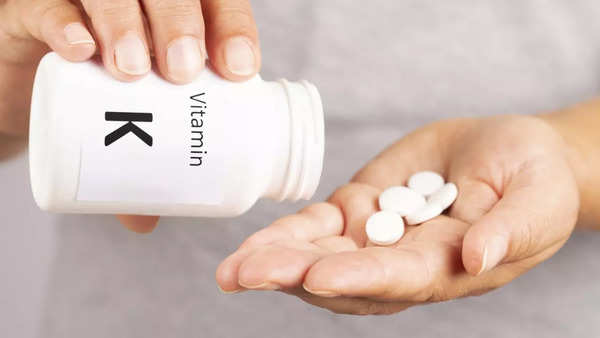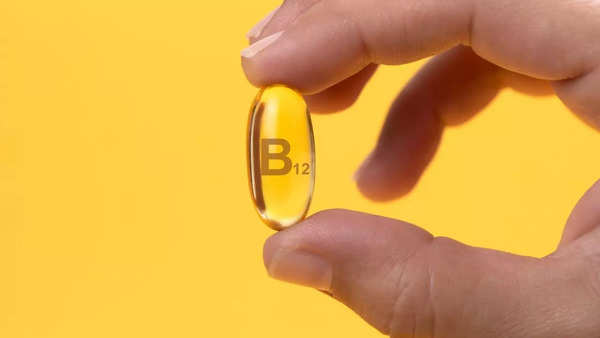Menopause, which marks a significant transition in a woman’s life, is often accompanied by myriad health challenges, particularly related to bone health. The risk of osteoporosis and fractures is inversely proportional to estrogen levels, the former increases with the decline in the latter.
Regular health screenings can help mitigate these risks by highlighting any concerns that may arise in the periodic check-ups. There are a number of tests that are essential in determining bone health. Dr. Shelly (Mittal) Mahajan, Lab Director & Clinical Lead at Mahajan Imaging Labs shares essential health tests every woman should take during menopause to protect bone health.
Recommended Tests for Protecting Bone Health During Menopause:
1. Calcium and Vitamin D Levels: Calcium is an essential element for maintaining bone density, while Vitamin D enables calcium absorption effectively. One’s bone density is highest between ages 25 and 35 and it starts declining as one gets older. Since the digestive system is very poor in absorbing calcium, Vitamin D is needed to ensure that we retain the required amount of calcium. Periodic health screening should be done to keep a check on the existing levels of these nutrients and dietary adjustments should be made, or supplementations should be taken, accordingly.
2. Bone Mineral Density (BMD) Test: The BMD test, which measures the density of minerals (like calcium) in bones, provides a clear indication of bone strength and the risk of fractures that might be present. It helps greatly in charting the course of treatment, if needed, or bolstering one’s system by taking the necessary supplements. According to the National Osteoporosis Foundation, approximately 1 in 2 women over the age of 50 will experience a fracture due to osteoporosis. The test, also referred to as dual energy X-ray absorptiometry (DXA), is important for investigating risk for osteoporosis, which is the most common type of bone disease. Bone tissue tends to become thin and frail over time and leads to disabling fractures due to Osteoporosis. Women who have a family history of osteoporosis or previous fractures should monitor their level more regularly.
3. Hormone Level Testing: Hormone levels, particularly estrogen and parathyroid hormone (PTH), offer valuable insights into bone health and thereby serve as key indicators of bone density and risk of osteoporosis. Studies show that low estrogen levels significantly increase the risk of osteoporosis in postmenopausal women. It is highly recommended for women, who have menopausal symptoms, to get their hormone level tested and evaluate potential treatments, if needed.
4. Thyroid Function Tests: Thyroid hormones play a key role in bone metabolism. Research indicates that women with untreated hyperthyroidism, an auto-immune condition that is caused by an overactive thyroid, can lose up to 20% of their bone density within five years. Women, who experience symptoms like weight loss, increased heart rate or changes in menstrual patterns, should undergo thyroid function tests once in 6 months to keep a tab on their levels.
In addition to the aforementioned, one needs to monitor one’s lifestyle issues to identify areas that might impact one’s health positively. Lifestyle factors such as physical activity, diet and smoking, which can significantly impact bone health, should be assessed regularly. Women can increase their bone density up to 1% annually by engaging in weight-bearing exercises. Working with a healthcare professional to devise a personalized dietary and exercise plan that supports bone health during menopause is also advisable.
To manage menopause effectively, one needs to be mindful of the changes one’s body is going through and then take the necessary steps to fill any gaps if needed. Regular check-ups can help women effectively navigate menopause and minimize the risks associated with decreased bone health.
According to new research published in the Journal of the Endocrine Society, supplementation with vitamin D plus calcium may help lower blood pressure in older adults with obesity (body mass index (BMI) greater than 30).
These supplements appeared to decrease both systolic blood pressure (the top number in a blood pressure reading) and diastolic blood pressure (the bottom number).
However, they noted that more is not necessarily better when it comes to lowering blood pressure. The effect was independent of the dose administered.
The people who took part in the study had high blood pressure.
Anything greater than a systolic blood pressure of 130 or a diastolic blood pressure of 80 is deemed to be high blood pressure.
The study included 221 individuals ages 65 and older who were taking vitamin D supplements.
They were all classified as having overweight (BMI greater than 25).
Additionally, they had a serum 25-hydroxy vitamin D level between 10 and 30 ng/mL. Anything below 30 ng/mL is considered insufficient, while values less than 20 are classified as vitamin D deficiency.
Two doses were examined: 600 IU/day (the Institutes of Medicine’s (IOM) recommended daily dose) and 3,750 IU/day. Both groups also took 250 mg of calcium citrate.
The study participants were followed for one year.
Upon comparing the two groups, they found that the higher dose of vitamin D did not provide greater benefit than the lower one.
However, both groups experienced a statistically significant drop in blood pressure, with their systolic blood pressure dropping by 3.5 mm Hg and their diastolic blood pressure dropping by 2.8 mm Hg.
The research further found that people with obesity and low vitamin D status improved their blood pressure the most.
Reimas Geiga, MD, a medical doctor, registered dietitian, and clinical nutritionist with Glowbar LDN, explained that vitamin D can affect blood pressure in several ways.
“One of the primary ways is by aiding in calcium regulation,” he said, “which is crucial for the contraction and relaxation of blood vessels. By improving vascular function, vitamin D could help reduce blood pressure.”
Additionally, in those with obesity, there is chronic, low-grade inflammation, said Geiga. This can impair blood vessel health, contributing to high blood pressure.
“Vitamin D has known anti-inflammatory properties that may help counteract this effect,” he explained. “Moreover, people with obesity are more likely to experience vitamin D deficiency because fat cells can store vitamin D, reducing its availability to the body.”
According to Geiga, supplementation back to adequate levels can help improve vascular health and lower blood pressure.
“Additionally, vitamin D influences the renin-angiotensin-aldosterone system, a key regulator of blood pressure,” he said. “Adequate vitamin D levels may reduce the activity of this system, leading to better blood pressure control.”
Given that vitamin D is easy to obtain, patients may wonder how they can apply the study’s findings to their own lives.
Dr. Rita Hawle, a clinical dietitian and nutritionist with ClinicSpots, says the first step is determining whether you are actually low in vitamin D.
“A simple blood test can reveal any deficiency that may be contributing to blood pressure issues,” she said. “If levels are low, supplements or a bit of natural sunlight exposure (when safe) can help improve vitamin D status over time.”
However, she added that vitamin D supplementation really needs to be a part of a larger strategy.
“Blood pressure responds well to a combined approach—regular exercise, a heart-healthy diet, and effective weight management are all important for long-term benefits,” said Hawle.
Additionally, while the study looked at supplementation with 600 IU and 3,750 IU doses, she advises speaking with your physician about what is an appropriate dose for you.
Vitamin D can accumulate in the human body, leading to a toxic build-up of calcium.
“This study provides encouraging insights,” Hawle concluded, “but it’s best to view vitamin D as part of a larger wellness plan, particularly for individuals managing both obesity and high blood pressure.”
A new study reports that older people with high blood pressure who were taking a vitamin D supplement along with calcium had lower blood pressure after a year.
The best results were experienced by people with obesity and lower initial levels of vitamin D at the start of the study.
Improved calcium regulation, lower inflammation, and reduced activity of the renin-angiotensin-aldosterone system could account for the reduction in blood pressure.
Experts recommend getting a blood test to determine if you are actually low in vitamin D and following your doctor’s advice regarding the dose you take before supplementing with it.
Supplementation should be part of a combined approach that includes a healthy diet, exercise, and weight management.
Yes, eggs are one of the very best sources of vitamin D, although it goes without saying that their vitamin D content depends on the diet of the laying hens. Vitamin D is often called the “sunshine vitamin” and is required to support the activation of the immune system and for many other healthy bodily functions. Thus, though sunlight is such a major source of this vitamin, eggs become an important dietary source in some cases, especially for people who spend little time outdoors.
This means that eggs, particularly yolks, are a naturally occurring source of vitamin D as fat-soluble vitamins tend to store themselves in the egg’s fatty portion. On an average, one yolk may contain around 10 to 20 IU of vitamin D, though this varies. The required dietary allowance for adults is around 600 to 800 IU of vitamin D per day, so eggs may fill in a certain amount of dietary requirement of vitamin D.The vitamin D content in eggs can be influenced by:
- Hens that consume vitamin D-enriched feed or have access to sunlight produce eggs with significantly higher vitamin D content. Some commercially available eggs are even marketed as “vitamin D-enhanced,” containing up to four times the usual amount.
- Hens raised outdoors with exposure to sunlight tend to produce eggs with higher vitamin D levels, similar to how humans synthesize the vitamin from sunlight exposure.
- Some breeds naturally produce eggs with a slightly higher vitamin D content, though the variation is minimal compared to dietary and environmental factors.
How vitamin D in eggs helps human health
The role of vitamin D is multifunctional, so getting it from eggs comes in handy to acquire all these benefits:
Vitamin D allows for the absorption of calcium in the body, needed for healthy, productive bone and teeth. Vitamin D minimizes the risk of osteoporosis.
Vitamin D is an immune response regulator; it therefore plays a very key role in fighting off pathogens and reducing inflammation.
Low levels of vitamin D have been associated with mood disorders including depression.
Vitamin D is important for maintaining healthy muscles and muscle function that might help keep older adults from losing their strength, coordination, and balance.
Other nutrients present in eggs
Beyond vitamin D, eggs are a powerhouse of nutrition. They are rich in protein, containing all essential amino acids, as well as important vitamins and minerals, including:
- Vitamin B12: Crucial for red blood cell production and nerve health.
- Vitamin A: Important for vision, immune function, and skin health.
- Choline: Essential for brain development, cell membrane integrity, and liver function.
- Selenium: Acts as an antioxidant and supports thyroid health.
114622577
The combination of protein, healthy fats, and essential nutrients makes eggs a nutrient-dense food, supporting muscle maintenance, metabolic health, and energy levels.
Regular check-ups help identify vitamin D deficiency early, especially in individuals at high risk, such as the elderly, people with limited sun exposure, or those with darker skin.
Deficiency often goes unnoticed until symptoms appear, making regular monitoring crucial for early detection and intervention.
Dr Vishu Bhasin, MBBS, DCP, Director & Consultant Pathologist shares why regular vitamin- D checks should be part of your health regimen.
Bone Health Monitoring:
Vitamin D is essential for calcium absorption and bone mineralization. Regular check-ups ensure that levels are adequate to support healthy bones and teeth.
Low vitamin D levels can lead to rickets in children and osteomalacia or osteoporosis in adults, increasing the risk of fractures and bone deformities.
Prevention of Chronic Diseases:
Vitamin D is linked to the prevention of several chronic diseases, including cardiovascular disease, diabetes, and cancer. Regular testing helps ensure that levels are sufficient to maintain long-term health and reduce the risk of these conditions.
Monitoring vitamin D levels can assist in the prevention of diseases like autoimmune disorders (e.g., multiple sclerosis) and reduce the risk of severe infections like influenza.
Immune System Support:
Vitamin D plays a vital role in regulating immune function. Regular check-ups ensure that levels are optimal to support the body’s defense against infections and reduce the risk of autoimmune diseases.
Individuals with low vitamin D may be more prone to infections and inflammatory conditions, making regular monitoring important for maintaining immune health.
Muscle Function and Fall Prevention:
Adequate vitamin D is necessary for muscle strength and function. Regular check-ups help prevent deficiency-related muscle weakness, which is particularly important in older adults prone to falls.
Fall prevention programs often include regular vitamin D testing to ensure muscle health and reduce the risk of fractures.
Mood and Mental Health:
Vitamin D deficiency has been linked to depression and mood disorders. Regular testing helps monitor levels, which can assist in managing mental health, especially in individuals prone to seasonal affective disorder (SAD) or those with low sunlight exposure.
Maintaining adequate vitamin D levels may improve mood stability and overall well-being.
Management of At-Risk Populations:
Pregnant women, breastfeeding mothers, and individuals with chronic illnesses (e.g., malabsorption syndromes, liver or kidney disease) require regular vitamin D check-ups to ensure adequate levels for both themselves and their babies.
Regular testing is crucial for postmenopausal women, who are at increased risk of osteoporosis and fractures due to declining bone density.
Adjustment of Supplement Dosage:
Regular check-ups allow healthcare providers to adjust vitamin D supplement doses based on individual needs, ensuring neither deficiency nor toxicity.
Over-supplementation can lead to hypercalcemia, with symptoms like nausea, vomiting, kidney stones, and soft tissue calcification. Regular monitoring helps maintain a balance.
Monitoring for Malabsorption Conditions:
Individuals with conditions that impair nutrient absorption (e.g., Crohn’s disease, celiac disease, or those with bariatric surgery) benefit from regular vitamin D testing, as they are at higher risk for deficiency.
Frequent monitoring helps ensure that treatment plans are effectively maintaining adequate vitamin D levels.
Early Intervention and Treatment:
Regular check-ups allow for early intervention with lifestyle changes, dietary adjustments, or supplementation if vitamin D levels are suboptimal.
Timely correction of vitamin D levels can prevent long-term health issues related to bones, immune function, and chronic disease risk.
Your bones can grow weak as you age and without adequate nourishment and stores of vitamins and minerals, they may quickly turn brittle which can cause chronic pain, issues in movements, weak teeth, and brittle nails. Robust bone health is also crucial for a good posture. Achieving strong bones and teeth isn’t that complicated if you consume a balanced diet and include sufficient vitamins in your everyday meals.
Here’s a list of vitamins that can ensure strong bone and teeth:
Vitamin A

Vitamin A is crucial for maintaining oral health as it helps in the formation of keratin, an important protein that teeth enamel is made of. Sensitive teeth or gums can indicate Vitamin A deficiency and a sign that you need to increase intake of this nutrient. Vitamin A is also important for healthy gum tissue and not adding a sufficient amount of it could lead to inflamed, irritated, or swollen gum. It can also lead to gum bleeding while brushing on flossing teeth.
Ways to add Vitamin A to the diet
Carrot: Abundant in the winter season, raw or cooked carrot can be added to a variety of sweet and savoury dishes be it salad, curries, or puddings.
Sweet potato: Another rich source of Vitamin A, it can be boiled or baked, or turned into a stir-fry for a delectable treat.
Kale: The leafy green vegetable, which is a storehouse of Vitamin A and a range of micronutrients can be added in salads or in curries, and soups. Kale chips are also gaining popularity.
Watermelon: Sweet, juicy and delicious, watermelon offers a burst of nutrients apart from a generous dose of Vitamin A. It is best enjoyed as a whole fruit, but you can also consume its juice, add it in salad or frozen treats.
Vitamin D

Vitamin D is regarded as important for the teeth health as it helps in calcium absorption and strengthening the bones. According to a study published in the journal Nutrients, Vitamin D plays an important role in bone and tooth mineralization. When Vitamin D levels are low, it can lead to the ‘rachitic tooth’, which means your teeth are highly susceptible to fracture and decay.
Ways to add Vitamin D to the diet
Oily fish: One of the richest sources of Vitamin D, oily fish like salmon, sardines, herring and mackerel can be added to the daily diet for increasing Vitamin D intake, which can go a long way in improving your dental health. Oily fish can be grilled, barbecued, roasted or baked.
Egg yolks: A brilliant source of Vitamin D, egg yolks can be used in a variety of ways. Poaching, soft boiling, or scrambling them could help you reap benefits of vitamins like A, D, E, and choline.
Fortified foods: Many foods are fortified with Vitamin D like cereals, orange juice, fortified milk and cheese which can be added to the diet.
Vitamin C

Vitamin C plays a significant role in maintaining your teeth as well as gum health. As per a study published in Frontiers in Nutrition, Vitamin C contributes to collagen synthesis, which is an important protein for providing tooth structure, support, and maintenance. Vitamin C also reduces the risk of developing secondary caries in children. It is also an excellent vitamin for gums. It helps keep the connective tissues in the gums healthy and strong which can prevent gum bleeding and disease.
Ways to add Vitamin C to the diet
Bell peppers: An amazing source of Vitamin C, bell peppers can be eaten raw in salad or sauteed, grilled, roasted, depending on your preference.
Oranges: Super-rich in Vitamin C, these fruits are best eaten whole. They can be added in fruit salads or consumed in the form of juice, breakfast rolls, or desserts. However, eating them sweet can be harmful for your teeth.
Strawberries: Raw strawberries are the best for your teeth health and any added sugar must be avoided in the recipes. You can eat them as a whole fruit, add them to smoothies and other baked goods.
Vitamin K

Vitamin K1 and K2, both can contribute significantly in your dental health; the former is found in green leafy vegetables, while the latter – further divided into subgroups like MK4 and MK13, is mostly found in dairy products, pork, poultry and fermented foods. Vitamin K helps active proteins that regulate bone mineralization and can assist in the development and repair of teeth and bones. When it comes to bone health include dental health, Vitamin K2 especially has a protective effect on bones.
Ways to add Vitamin K to the diet
Broccoli (Vitamin K1): Green leafy vegetables are abundant in Vitamin K and broccoli is no exception. It can be added in soups, salads or stir-fries.
Radish (Vitamin K1): Radish is rich in Vitamin K1 and depending on your taste preference you can have them raw for a crunchy bite or cooked, roasted or buttered for a delectable treat.
Dairy products (Vitamin K2): Be it milk, cheese, or yoghurt you can increase your Vitamin K2 intake and improve your dental health by consuming dairy products.
Vitamin B 12

Vitamin B12 is an important nutrient for having strong teeth as it helps your body absorb calcium, an essential mineral for your teeth and bones. Vitamin B12 deficiency can cause tooth loss due to weakened bones and gums. According to a study published in International Journal of Clinical Pediatric Dentistry, Vitamin B12 deficiency may cause an increase in the prevalence of dental caries and gingival diseases in children.
Ways to add Vitamin B12 to the diet
Eggs: Eating boiled eggs in breakfast could help improve your Vitamin B12 levels. Also, egg yolks may have higher levels of vitamin B12 than egg whites, so you must add them to your diet.
Greek yoghurt: Milk products like yogurt have the highest absorption of vitamin B12, between 51% and 79%. According to USDA data, a 156-gram container of Greek yogurt offers about 45 percent of your daily need for B12.
Skincare for stress and fatigue: 5 ways to revive your tired skin